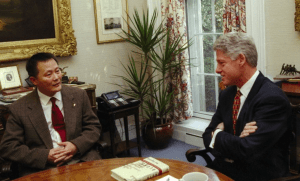Journal of Political Risk, Vol. 7, No. 6, June 2018

Emerald Princess crosses the new Cocoli Locks of the Panama Canal expansion in Panama City. A giant Chinese-chartered freighter nudged its way into the expanded Panama Canal on Sunday to mark the completion of nearly a decade of work forecast to boost global trade. Source: Craig Stanfill via Flickr.
William R. Hawkins
International Economics and National Security Consultant
On June 4, the Koch brothers (Charles and David) announced the launch of a “multi-year, multimillion-dollar” campaign against the tariffs and trade restrictions imposed by the Trump administration; especially those levied on China. The billionaire brothers are regularly called “conservatives” because they make large campaign donations to Republican candidates. But they are not conservatives; they are libertarians, a very different breed of cat. And their donations to the GOP are meant to sway the party in their ideological direction, not merely support it. The liberal media tries to tarnish conservatism by placing libertarians on “the Right” even though this is not their intellectual origin. This is done to further the left-wing narrative that “conservatives” are self-interested, greedy individuals who are enemies of organized society and the common good. This is true for libertarians, who doubt the very legitimacy of the nation-state or the “higher” norms of society. Too often they define right and wrong on the basis of whether it turns a profit.




